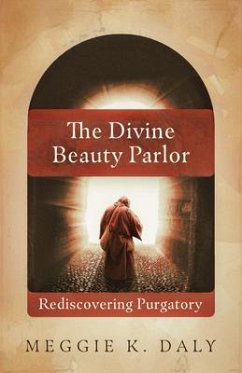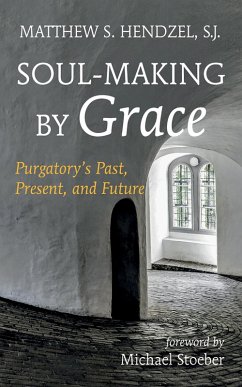The Divine Beauty Parlor: Rediscovering Purgatory is a captivating narrative that examines purgatory through the multifaceted approach of theology, philosophy, history, Christian anthropology, Catholic teaching, and Protestant objections. Extensively researched by Meggie K. Daly, the book is written from a Catholic perspective but with an ecumenical eye toward understanding the roots of Christian denominational differences regarding purgatory's existence.
Against the backdrop of a postmodern world, the book explores the concept of absolute truth through the prism of the "Three Pillars" that the Catholic Church uses to discern truth: Sacred Scripture, Sacred Tradition, and Magisterium. The book addresses the complexities of sin, guilt, and conscience and delves into the oft-misunderstood concept of temporal punishment for sin. Arguments for and against purgatory are framed within their respective theological views of justification, sanctification, and human psychology. Various theological models of purgatory are presented, emphasizing divine mercy, divine justice, or both with philosophical insight and historical perspective. The "work" of purgatory is speculated upon within the guardrails of Catholic doctrine.
The history of purgatory examines early Christian epitaphs and "literature," classical biblical exegesis, the writing of the early Greek and Latin Fathers, the impact of Scholasticism, and papal and council documents, including dogmatic declarations. The theology and historical roots of indulgences are unearthed, including their ties to early Christian penitential rites, the "Holy Wars" and Crusades, and their impact on the Protestant Reformation. Purgatory's depiction in medieval art, literature, and the legends and writings of saints are unveiled. Lastly, contemplation of traditional Catholic channels of grace and St. Thérèse of Lisieux's "Little Way" offers readers open pathways to potentially bypass purgatory.
Daly's penetrating approach and unique synthesis of information presume no previous knowledge other than the basics of the Christian faith and an inquisitive mind. The Divine Beauty Parlor is appropriate for anyone curious about Purgatory, those who desire a deeper understanding, and serious scholars alike.
Dieser Download kann aus rechtlichen Gründen nur mit Rechnungsadresse in A, B, CY, CZ, D, DK, EW, E, FIN, F, GR, H, IRL, I, LT, L, LR, M, NL, PL, P, R, S, SLO, SK ausgeliefert werden.









